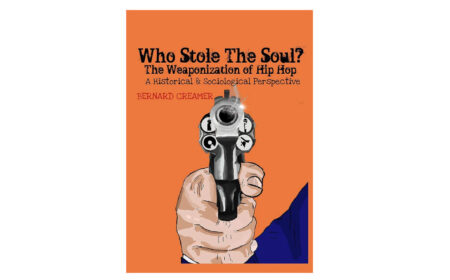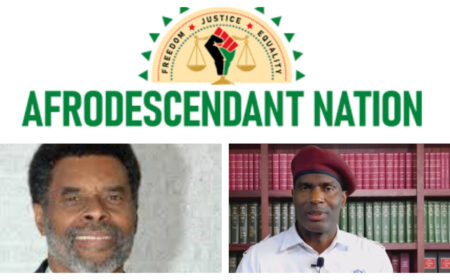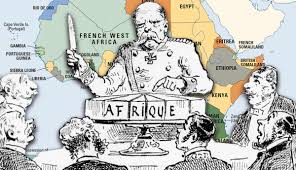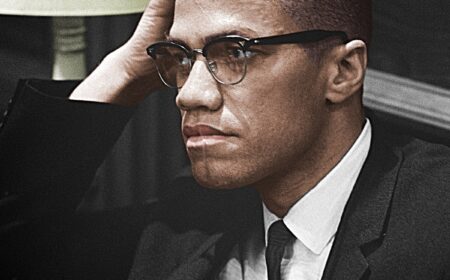A.D.O.S 101 A historical primer of the anti-African roots of the ADOS movement


Black America’s quest for citizenship & the cry for government action
Political genealogy matters. If you want to understand the basis of someone’s political thought, you must first examine their political origins to understand the threshold that crossed them into consciousness. Historically, within the African-American community, there have been two distinct strains of political thought, which emerged simultaneously after emancipation: African political thought, represented by Martin Delaney; and Negro political thought, represented by Frederick Douglass.
After the North lost the war to the South, the reconstituted US federal government was forced to pay reparations to its former slave-holding citizens, as compensation for their loss of property; in the form of African bodies. These formerly enslaved persons were now recognized as wards of the state, conferring upon them a change in legal character — from private property to state property. This monumental transaction would lead to 100 years of debate, around a central issue, that would come to be known as the “Negro Problem.”
How does America deal with it’s newly freed, but unwanted Negroes?
Forward-thinking white Americans began devising solutions to this question far in advance of the abolition of slavery. The proposed solutions ranged from conservative repatriation schemes, devised by the American Colonization Society, to more liberal/benign approaches, which involved the removal of Black men, and the reproduction of whiteness through the children of Black women.
FYI — For more information on the latter method, you can checkout the following presentation that I gave, last year, titled: Black Fertility, Underemployment, & Racial Extermination in America
Whether conservative or liberal, white Americans were in complete agreement on two cardinal principles, which became the bedrock of the post- Civil War, political landscape:
- The presence of the newly freed Africans constituted a problem that needed to be solved.
- The formerly enslaved, sons and daughters of Africa, would NEVER be recognized as citizens in America.
The following excerpt was written by Chief Justice, Roger B. Taney, in what became his most notable opinion, during his time on the bench — the 1857, Dred Scott Decision:
neither the class of persons who had been imported as slaves nor their descendants, whether they had become free or not, were then acknowledged as a part of the people nor intended to be included in the general words used in that memorable instrument….
They had for more than a century before been regarded as beings of an inferior order and altogether unfit to associate with the white race, either in social or political relations; and so far inferior that they had no rights which the white man was bound to respect; and that the Negro might justly and lawfully be reduced to slavery for his benefit. He was bought and sold and treated as an ordinary article of merchandise and traffic whenever a profit could be made by it. This opinion was at that time fixed and universal in the civilized portion of the white race….
the right of property in a slave is distinctly and expressly affirmed in the Constitution. The right to traffic in it, like an ordinary article of merchandise and property, was guaranteed to the citizens of the United States, in every state that might desire it…. And the government in express terms is pledged to protect it in all future time if the slave escapes from his owner. This is done in plain words — too plain to be misunderstood.
With this landmark ruling, the US Supreme Court openly declared that black people were not considered citizens of the republic. Some might argue that the 14th amendment forever solved the question of citizenship, as it pertains to the descendants of Africans enslaved in the United States, but then you’d have to ask yourself, how can that be the case when African Americans are still fighting for “full citizenship” 151 years after its passing?
Furthermore, the contradiction of citizenship remains, in that, African Americans were still governed as a problem to be solved, well up until the 1960s — when white America devised a final solution to the “problem,” following the decade of race rebellions. It was during this period that the US government, operating through the person of Richard Nixon, determined that “the issue of race could benefit from a period of ‘benign neglect’.” From this moment on, all matters pertaining to the “Negro Question” were both discussed, and acted on privately(i.e. in secret).
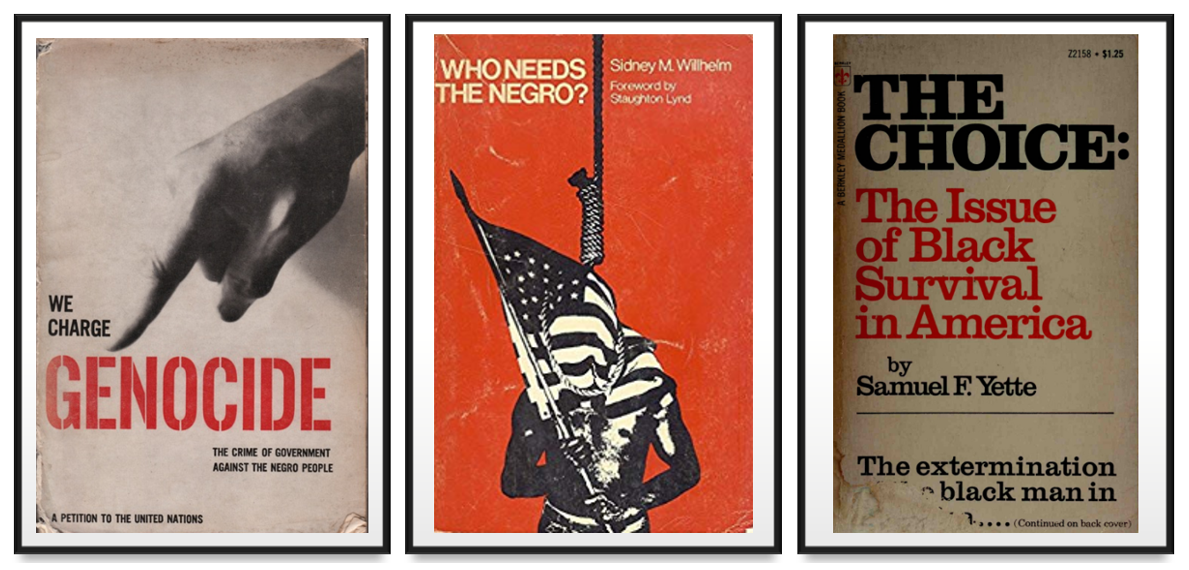
As African Americans, our political orientation towards this question, is the primary factor that shapes the whole of our political outlook in this country. If you accept the premise of the question — that African Americans are indeed a problem in need of solving — you will set yourself to the task of solving it. Naturally, you’ll arrive quickly at the most expedient solution to dealing with the “race problem,” which is: Black Americans need to be made white.
This notion of Black Americans being amalgamated and assimilated into the whiteness of America, is an idea that garnered much traction during the closing decades of the 19th century, and the early decades of the 20th century— especially among the, mixed-race, Black elite. The ‘political’ thrust behind Negro amalgamation can be traced directly to the father of Negro American thought, Frederick Douglass.
The 1866 delegation…
In the Winter of 1866, Frederick Douglass led a group of delegates to meet with the newly installed President, Andrew Johnson, to seek his assurance that the “amendment prohibiting slavery,” would be “enforced with appropriate legislation,” and to petition, for the Negro, the right to the franchise:
In the order of Divine Providence you are placed in a position where you have the power to save or destroy us, to bless or blast us — I mean our whole race. Your noble and humane predecessor placed in our hands the sword to assist in saving the nation, and we do hope that you, his able successor, will favorably regard the placing in our hands the ballot with which to save ourselves.
~ Frederick Douglas
Johnson asserted, that on the issue of slavery, “a great national guarantee has been given, one that cannot be revoked.” He further stated, that as a former slave-holder himself, many of his “slaves” followed him to the White House, “while others are occupying and enjoying [his] property with [his] consent.” But on the issue of the franchise, he outright rejected the request, on the grounds that it would be tyrannical to subject the white masses to the whims of the Black vote, and would certainly lead to race war:
While I say that I am a friend of the colored man, I do not want to adopt a policy that I believe will end in a contest between the races, which if persisted in will result in the extermination of one or the other.
…is it proper to force upon this community [White America], without their consent, the elective franchise, without regard to color, making it universal?
…It is the people of the States that must for themselves determine this thing. I do not want to be engaged in a work that will commence a war of races.
~ Andrew Johnson
Douglass attempted once more to remind the President of the Negroes service to the country, during the great war, and that a precedent had already been established for Federal action at the State level:
It as been shown in the present war that the Government may justly reach its strong arm into States, and demand from them, from those who owe it allegiance, their assistance and support. May it not reach out alike arm to secure and protect its subjects upon who it has a claim?
~Frederick Douglass
Once again, Johnson rejected the request, and suggested to the members of the delegation, that they consider emigration, or convincing the white masses, that they would not be harmed by granting the franchise to the Negro.
In parting, Douglas turned to Johnson, and to his fellow delegates, and made the following statement: “The President sends us to the people, and we go to the people;” — to which, Johnson replied, “Yes, sir; I have great faith in the people. I believe they will do what is right.”
Counsel of defeat…
Douglas, like many of the thinking Negroes of his time, held deeply ingrained anti-African sentiments. Many subscribed to the white supremacist belief that Africans (i.e. Black people) represented a savage race, as compared to Europeans, who were civilized — and the lesser races should be judged, based upon how closely their society mirrored the culture and customs of Europe. Therefore, the suggestion of separating from white people is a notion they wouldn’t accept.
As you can see from the excerpts quoted below, the idea of African inferiority — and by extension, white superiority — is an idea that Douglass internalized, nurtured, and defended throughout his lifetime:
Douglass in 1852 (Pre-emancipation)…
We believe that contact with the white race, even under the many unjust and painful restrictions to which we are subjected, does more toward our elevation and improvement, than the mere circumstance of being separated from them could do. The truth is sometimes acknowledged by Colonizationists themselves. They argue (for a diabolical purpose it is true) that the condition of our race has been improved by their situation as slaves, since it has brought them into contact with a superior people, and afforded them facilities for acquiring knowledge. This position is sound, though the hearts that gave it birth, are rotten. We hold, that while there is personal liberty in the Northern States for the colored people, while they have the privilege to educate their children, to speak and write out their sentiments, to petition, and in some instances, and with some qualifications, to exercise the right of suffrage, the time has not come for them to emigrate from these States to any other country, and last of all, to the wilds of Africa.
Douglass in 1870 (Post-emancipation)…
“Our future is here, we know nothing about Africa. Within the next fifty years, we will be running this county, and living in complete fellowship with our white brothers.” (Douglass pictured below with his 2nd wife, Helen Pitts-Douglass.)
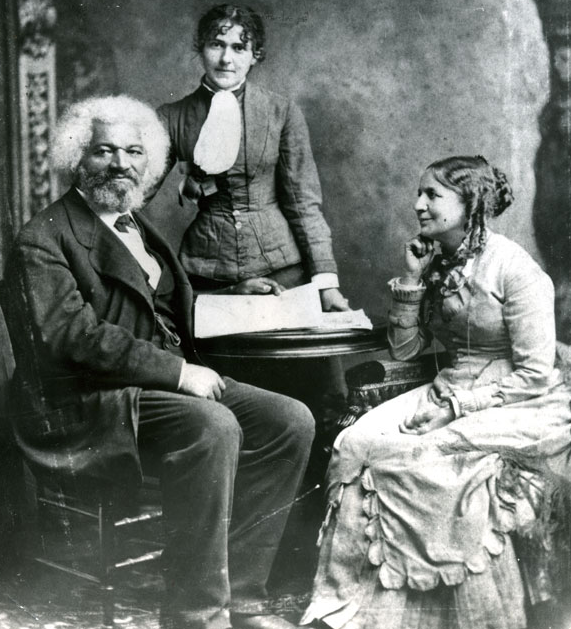
In spite of all of Americas failings, Frederick Douglass adamantly believed that the United States government would do right by the Negro, and would eventually act to make us whole. Even after emancipation was defeated, reconstruction betrayed, and slavery reestablished, Douglass still held faith that America would act to redeem its lost children.
This was a belief that was purely rooted in fantasy, as Douglass was well aware of the level of struggle necessary to bring down the institution of slavery — and he knew that the same, or a greater amount of force, would be required to destroy the system of racial caste in America. During the height of the abolition struggle, Douglass reached the conclusion that slavery would not be ended unless it was brought down by violent means, but he himself was not willing to strike the blow.
[Brown]** has attacked slavery with the weapons precisely adapted to bring it to the death. Moral considerations have long since been exhausted upon Slaveholders. It is in vain to reason with them. One might as well hunt bears with ethics and political economy for weapons, as to seek to “pluck the spoiled out of the hand of the oppressor” by mere force of moral law. Slavery is a system of brute force. It shields itself behind might, rather than right. It must be met with its own weapons.
— Excerpt written by Frederick Douglass, in the November, 1859, issue of the Liberator, about John Brown’s raid on Harpers Ferry
Likewise, he was not willing to strike out against racial caste, but instead encouraged capitulation, as a means to solving the “race problem,” in America. In Ronald R. Sundstrom’s, The Browning of America and the Evasion of Social Justice, he revisits some of the core arguments advanced by Douglass during this period of time:
In his multiple capacities he argued that the long-term solution to racial division in the United States, known then as the “race problem,” or tellingly as the “Negro problem,” was the end of racial separation through assimilation and amalgamation. He held that newly emancipated black Americans should assimilate into Anglo-American society and culture. Social assimilation would then lead to the entire physical amalgamation of the two groups and the emergence of a new intermediate group that would be fully American.
Bearing in mind, the negative view that Douglass held of Africa/Africans — as backwards and primitive — Europe became the ideal expression of humanity for all forward thinking Negroes. Having abandoned her promise, Douglass believed that the only way forward for the re-enslaved American Negro was through continued amalgamation and assimilation, buttressed with constant political agitation, to force America to make good her promise of citizenship for her darker hued children.
In the closing decade of the 19th century, Frederick Douglas wrote two of his final rhetorical appeals, in an attempt to persuade white America, to once again take up the cause of the Negro:
- The Race Problem; 1890
- Lessons of the hour; 1894
In both speeches, he spoke directly to the “negro problem,” and urged his audience to reframe their view of the challenge, as a national issue, rather than a negro issue:
The United States Government made the negro a citizen, will it protect him as a citizen? This is the problem. It made him a soldier, will it honor him as a patriot? This is the problem. It made him a voter, will it defend his right to vote? This is the problem. This, I say, is more a problem for the nation than for the negro, and this is the side of the question far more than the other which should be kept in view by the American people.
— Excerpt from “THE RACE PROBLEM” Delivered before the Bethel Literary and Historical Association in the Metropolitan A. M. E. Church, Washington, D.C. October 21, 1890
On January 9, 1894, Douglass gave, what is frequently described as, his last great speech: “The Lessons of the Hour.” He used this address to recap the harvest of rage African Americans had reaped, since emancipation, in the form of lynchings, mob rule, and the continued denial of justice.
As far as his hope for America, he never completely lost faith, but openly admitted that the future for African Americans would be “dark and troubled.”
Do not ask me what will be the final result of the so-called negro problem. I cannot tell you. I have sometimes thought that the American people are too great to be small, to just and magnanimous to oppress the weak, too brave to yield up the right to the strong, and too grateful for public services ever to forget them or fail to reward them. I have fondly hoped that this estimate of American character would soon cease to be contradicted or put in doubt. But the favor with which this cowardly proposition of disfranchisement has been received by public men, white and black, by Republicans as well as Democrats, has shaken my faith in the nobility of the nation. I hope and trust all will come out right in the end, but the immediate future looks dark and troubled. I cannot shut my eyes to the ugly facts before me.
Not only did he accept the fact that the future for African Americans would be troubling, he fully acknowledged that every legislative gain that was hard won through emancipation, and reconstruction, had been stripped away, by the same white masses, Andrew Johnson had once urged him to appeal to:
The downward tendency already manifest has swept away some of the most important safeguards. The Supreme Court has surrendered. State sovereignty is restored. It has destroyed the civil rights Bill, and converted the Republican party into a party of money rather than a party of morals, a party of things rather than a party of humanity and justice. We may well ask what next?
There was a threat made long ago by an American statesman, that the whole body of legislation enacted for the protection of American liberty and to secure the results of the war for the Union, should be blotted from the national statute book. That threat is now being sternly pursued, and may yet be fully realized.
Before concluding, Douglass included several remarks, to etch in stone, his ideological position as it pertains to Africa, and the identity of African Americans. On the first count, he made sure to express his utter contempt for the fact that African Americans were not allowed to attend the 1893 World Fair, held in Chicago, as well as the shame that he felt having “Dahomeyans” stand in their stead:
…as if to shame the educated negro of America, the Dahomeyans were there to exhibit their barbarism, and increase American contempt for the negro intellect. All classes and conditions were there save the educated American negro. He ought to have been there if only to show what American slavery and freedom have done for him.
On the second count, he left no room for interpretation, as it relates to his position on the identity of African Americans (The original ADOS argument). Without hesitation, Douglass stated firmly, that Black Americans are not African, nor do they owe anything to the people of Africa:
They tell us that we owe something to our native land. But when the fact is brought to view, which should never be forgotten, that a man can only have one native land, and that is the land in which he was born, the bottom falls entirely out of this sentimental argument… All this native land talk is nonsense. The native land of the American negro is America. His bones, his muscles, his sinews, are all American. His ancestors for two hundred and seventy years have lived, and labored, and died on American soil, and millions of his posterity have inherited Caucasian blood.
It is competent, therefore, to ask, in view of this admixture, as well as in view of other facts, where the people of this mixed race are to go, for their ancestors are white and black, and it will be difficult to find their native land anywhere outside of the United States.
In his final counsel of surrender, Douglass encouraged the American Negro “to work to better his condition in such ways as are open to him here.” This can largely be interpreted as — continued amalgamation, continued assimilation, and the fight for good whites, to take up the negro cause through continued agitation.
**Note: Both Harriett Tubman, and Frederick Douglass were asked by John Brown to participate with him in the raid. Harriett agreed to do so, but, unfortunately, she fail ill before it was carried out. Douglass, on the other-hand, would not commit, and his long-term friend, John Brown, carried out the mission without him. It’s important to note, that John Brown’s raid on Harpers Ferry was not an attempt to fight a war with the entire United States Army. His aim was to gather enough munitions for a protracted campaign of guerrilla war, which he referred to as “carrying the war into Africa.” John Brown devised a scheme to buy land as a slaveholder in the South, and to hire trusted black men to play the role of his slaves, using this as a ruse to agitate among the millions of Africans who were enslaved in the south. The guns from Harpers Ferry, were meant to arm them in the fight to overthrow slavery. When the raid failed, it is reported that John Brown expressed considerable contempt toward Frederick Douglass, for his refusal to join the campaign.
The Post-Douglas Era of Black American Politics
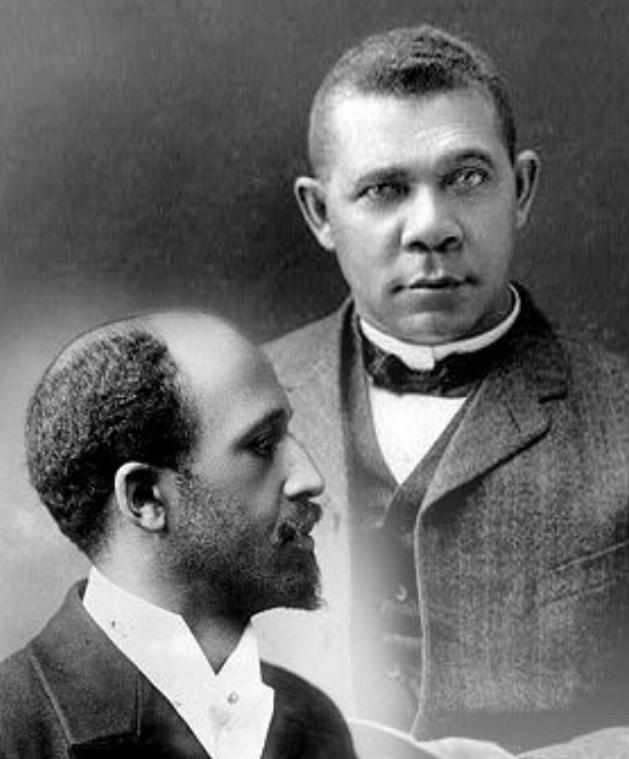
In the immediate period following the death of Frederick Douglass, there arose a new class of black political thinkers, often referred to as the “New Negro.” This group of Black political activists were much more militant, and rejected the counsel of racial suicide, that was hallmark of the Douglass generation.
Have we in America a distinct mission as a race — a distinct sphere of action and an opportunity for race development, or is self-obliteration the highest end to which Negro blood dare aspire?
~ W.E.B Du Bois (1897)
The primary spokesmen for this group, from the period of 1895 to 1915, was Booker T. Washington. Washington, who is perhaps one of our most misrepresented, and underappreciated historical figures, rose to prominence after calling for a change in political direction, while addressing an audience in Atlanta, on September 18, 1895, in what became known as the “Atlanta Compromise.”
Washington’s speech was largely a repudiation of the previous generations focus on perpetual agitation, and theatrical demonstrations, which only produced a strengthening in the will of the white masses to oppress the black community, and a weakening of our material position.
The wisest among my race understand that the agitation of questions of social equality is the extremist folly, and that progress in the enjoyment of all the privileges that will come to us must be the result of severe and constant struggle rather than of artificial forcing.
~ Booker T. Washington
Washington believed that Black people could build up power, internally, and negotiate from a stronger position, further down the road. Washington’s program for Black Power, largely focused on group economics, and the building of Black institutions to do for Black people, what the government refused to do.
Having been born into slavery, Washington lived to see the promise of emancipation betrayed, reconstruction abandoned, and Blacks re-enslaved by the end of the 19th century. He had no reason to believe that government would act, and reached the conclusion that if Black people were to survive in America, they would have to stop expending energy protesting the government for redress, and use their energy to build up the race.
I was born poor, and it seemed an even greater hardship that I should have been born a Negro. I did not like to admit, even to myself, that I felt this way about the matter, because it seemed to me an indication of weakness and cowardice for any man to complain about the condition he was born to. Later I came to the conclusion that it was not only weak and cowardly, but that it was a mistake to think of the matter in the way in which I had done. I came to see that, along with his disadvantages, the Negro in America had some advantages, and I made up my mind that opportunities that had been denied him from without could be more than made up by the greater concentration and power within.
Perhaps I can illustrate what I mean by a fact I learned while I was in school. I recall my teachers explaining to the class one day how it was that steam or any other form of energy, if allowed to escape and dissipate itself, loses its value as a motive power. Energy must be confined; steam must be locked in a boiler in order to generate power. The same thing seems to have been true in the case of the Negro. Where the Negro has met with discrimination and with difficulties because of his race, he has invariably tended to get up more steam. When this steam has been rightly directed and controlled, it has become a great force in the upbuilding of the race. If, on the contrary, it merely spent itself in fruitless agitation and hot air, no good have come of it.
While this was a conclusion that W.E.B Du Bois initially supported, he eventually broke with Washington, based on his belief that political agitation could be successful, if it was accompanied by mass education. Du Bois, like Douglass before him, believed that appeals could be made to the white masses to act in the favor of the Negro, but where Douglass went wrong by relying on emotional appeals, Du Bois would be successful by basing his arguments on scientific reason (i.e. data).
With this in mind, Du Bois set out to build the case for government action, and diligently worked towards raising the consciousness of the white masses for more than three decades. Even when faced with heinous acts of violence, Du Bois would not relent on his evangelical mission to educate white people, and encourage the government to act.
When Black Soldiers were lynched in the streets, while wearing their uniforms, returning from WWI, and the government refused to act, Du Bois refused to relent:
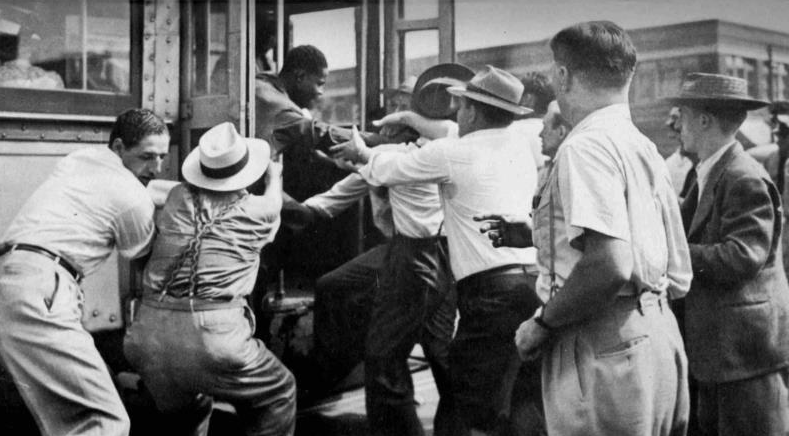
When Black towns were massacred by white mobs, and the government refused to act, Du Bois refused to relent:
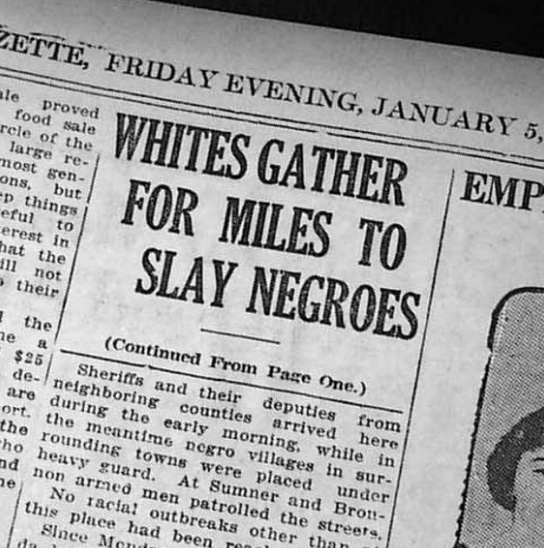
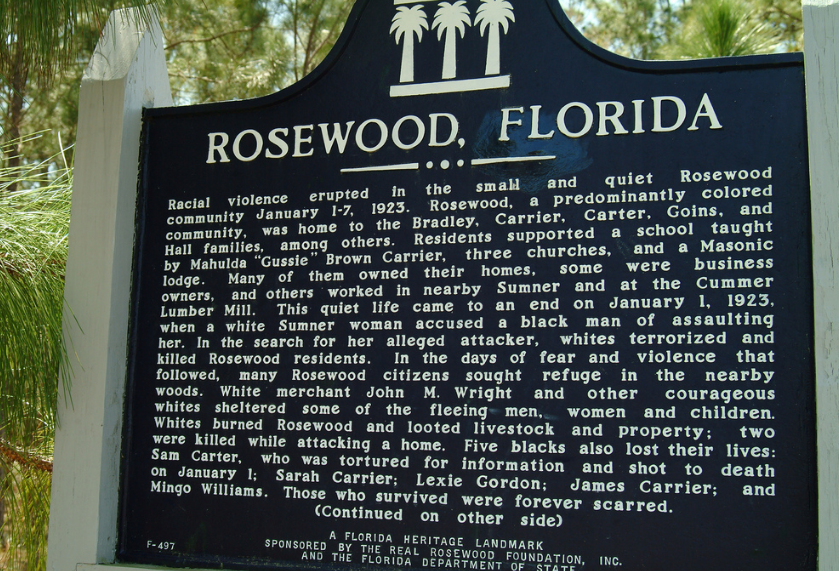
When a pregnant Black woman, Mary Turner, was dragged from her home, strung up to a tree, set on fire, had her 8-month old baby cut from her womb, and killed by the mob — the government refused to act, and Du Bois refused to relent:
It wasn’t until four years into the Great Depression, that Du Bois would abandon his evangelical post, and fully embrace the program of Booker T. Washington, that he betrayed 30 years earlier. This change in attitude was driven by the fact that the Great Depression was the one event that finally inspired the government to act, and when they did, they did so in a manner that ensured that the American Negro would not be the beneficiary of any government actions.
The following excerpt comes from Raymond Wolters, “Negroes and the great depression,” detailing Du Bois’s response to the governments inaction, when Negroes were literally, starving in the streets:
Du Bois believed that, on the whole, segregation and discrimination were more firmly entrenched in the 1930s than they had been when he began his work for racial betterment. Consequently, Du Bois concluded that his earlier belief that “America would yield to clear reason and determined agitation” had been naïve and mistaken. On the contrary, “to some extent the very agitation carried on in these years has solidified the opposition,” and he concluded that it was not feasible to look for salvation from whites. “So far as they were ignorant of the results of race prejudice, we had taught them… There can be no doubt that Americans know the facts; and yet they remain for the most part indifferent and unmoved.”
Later in life, Du Bois would recount this moment in his development; with disbelief at how naive he had been:
My basic theory had been that race prejudice was primarily a matter of ignorance on the part of the mass of men, giving the evil and anti-social a chance to work their way; that when the truth was properly presented, the monstrous wrong of race hate would melt quickly before it.
…in other words, beyond my conception of ignorance and deliberate ill-will as cause of race prejudice, there must be other and stronger and more threatening forces, forming the founding stones of race antagonism, which we had only begun to attack or perhaps in reality had not attacked at all.
I now began to realize that in the fight against race prejudice, we were not facing simply the rational, conscious determination of white folk to oppress us; we were facing age-long complexes sunk now largely to unconscious habit and irrational urge, which demanded on our part not only the patience to wait, but the power to entrench ourselves for a long seige against the strongholds of color caste. It was this long-term program, which called first of all for economic stability on the part of the Negro; for such economic foundations as would enable the colored people of America to earn a living, provide for their own social uplift, so far as this was neglected by the state and the nation…
I began to emphasize and restate certain implicit aspects of my former ideas. I tried to say to the American Negro: During the time of this frontal attack which you are making upon American and European prejudice, and with your unwavering statement and restatement of what is right and just, not only for us, but in the long run, for all men; during this time, there are certain things you must do for your own survival and self-preservation. You must work together and in unison; you must evolve and support your own social institutions; you must transform your attack from the foray of self-assertive individuals to the massed might of an organized body. You must put behind your demands, not simply American Negroes, but West Indians and Africans, and all the colored races of the world.
Unfortunately, his new position, was a program that the Black elite were not willing to support, so they reverted to the old program of Frederick Douglass, and wrote Du Bois off as a “latter-day” Booker T. Washington.
In his 1940 Autobiography, Dusk of Dawn, Du Bois revisits his attempt at developing a program of self-segregation for economic defense:
Of Course I soon realized that in this matter of segregation I was touching an old and bleeding sore in Negro thought. From the eighteenth century down the Negro intelligentsia has regarded segregation as the visible badge of their servitude and as the object of their unceasing attack. The upper class Negro has almost never been nationalistic. He has never planned or thought of a Negro state or a Negro Church or a Negro school. This solution has always been a thought up-surging from the mass, cause the pressure which they could not withstand compelled a racial institution or chaos. Continually such institutions were founded and developed, but this took place against the advice and best thought of the intelligentsia.
American Negroes have always feared with perfect fear their eventual expulsion from America. They have been willing to submit to caste rather than face this. The reasons have varied but today they are clear: Negroes have no Zion. There is no place where they can go today and not be subject to worse caste and greater disabilities from the dominant white imperialistic world than they suffer here today.
His conclusion reached in 1940, was identical to words he spoke in 1933, when he officially resigned from the NAACP:
Any movement toward such a program is today hindered by the absurd Negro philosophy of Scatter, Suppress, Wait, Escape… They think that we have only to wait in silence for the white people to settle the problem for us; and finally and predominantly, they think that the problem of twelve million Negro people, mostly poor, ignorant workers, is going to be settled by having their more educated and wealthy classes gradually and continually escape from their race into the mass of the American people, leaving the rest to sink, suffer and die.
American Negroes today, are picking up from where Du Bois left off in 1903. Through the evangelical work of Antonio Moore, and Yvette Carnell, the American DOS movement is attempting to build a case for government action, based on the flawed logic that “America has never really understood, or figured out, how to make the slave whole,” according to Antonio Moore.
Where Frederick Douglass got it wrong by relying on emotional appeals; and Du Bois got it wrong by relying on scientific reason; the ADOS movement will build their case for government action, based on economic data, namely the racial wealth gap.
It’s highly probable that the ADOS movement has studied the use of the “income-gap” by Civil Rights leaders, as a means to urge the government to make good on it’s debt to the Negro, which is why they’ve focused their strategy on the wealth gap, instead of the income gap.
After 160 years of trying, ADOS just might be our first opportunity to educate white people — the right way — on what needs to be done “to make the slave whole
